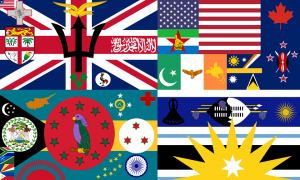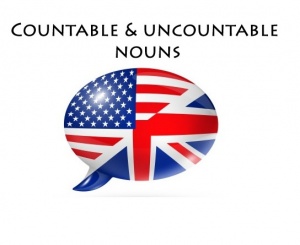Language/English/Grammar/Countable-and-Uncountable-Nouns
Countable and Uncountable Nouns
Grammar Rules
A noun is a word that refers to person, place, thing, event, substance or quality; can be either countable or uncountable. Countable nouns have singular and plural forms while uncountable nouns can be used only in the singular form.
In English grammar, words that refer to people, places or things are called nouns. There are several ways to classify nouns. One way is whether they are countable (also known as count) or uncountable (also known as non-count) nouns. Countable nouns, as the term suggests, are things that can be counted.
They have singular and plural forms.
E.g.
table, tables; month, months; pen, pens. A countable noun becomes plural by adding s at the end of the word.
Of course, there are nouns that form plurals in other ways.
E.g.
• man, men; child, children; goose, geese.
In contrast, uncountable nouns cannot be counted. They have a singular form and do not have a plural form – you can’t add an s to it, e.g. dirt, rice, information and hair.
Some uncountable nouns are abstract nouns such as advice and knowledge.
E.g.
• Her jewellery is designed by a well-known designer.
• I needed some advice, so I went to see the counsellor.
Some nouns can be countable or uncountable depending on the context or situation.
E.g.
• We’ll have two coffees (countable).
• I don’t like coffee (uncountable).
There are two kinds of nouns: countable nouns and uncountable nouns.
Simple things you can count are countable nouns, for example, eggs. Countable nouns have plural forms, which usually end in -s. They also have singular forms. The singular nouns can have a or an before them.
Things you can't count are uncountable nouns; for example, milk. You can't count milk. With uncountable nouns, don't use plural -s or a or an. For example, uncountable noun rice, it is not correct to say rices or a rice.
Countable Nouns
Use "a/an" or plural "-s"
- I have an egg for breakfast everyday.
- I don´t eat bananas.
How many eggs do you eat a week?
- I eat a lot of eggs.
- I don´t eat many. (eggs)
- I don´t eat a lot of eggs.
Uncountable Nouns
Don't use "a/an" or plural "-s"
- I drink milk every morning.
- I don´t eat seafood.
How much milk do you drink a day?
- I drink a lot of milk.
- I don´t drink much. (milk)
- I don´t drink a lot of milk.


